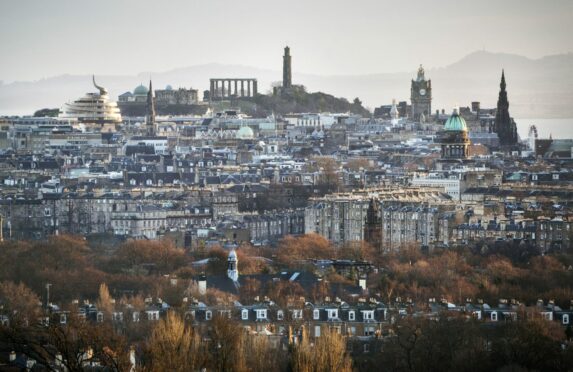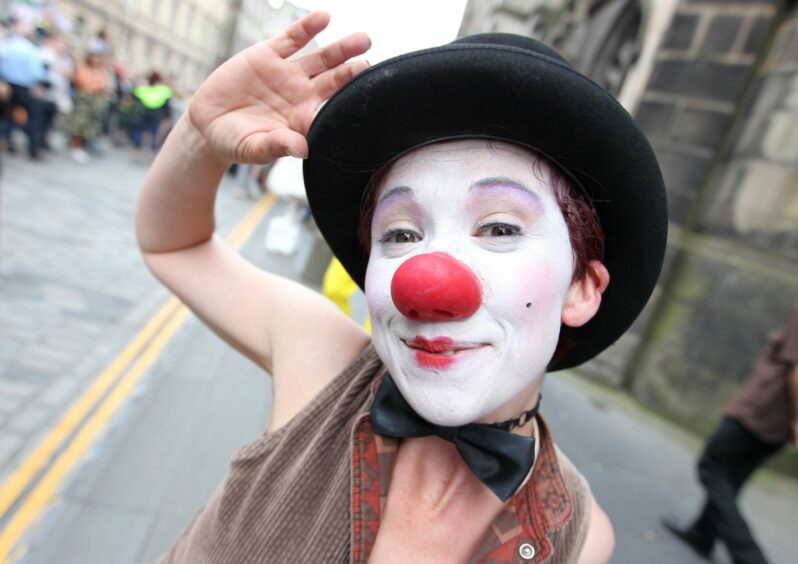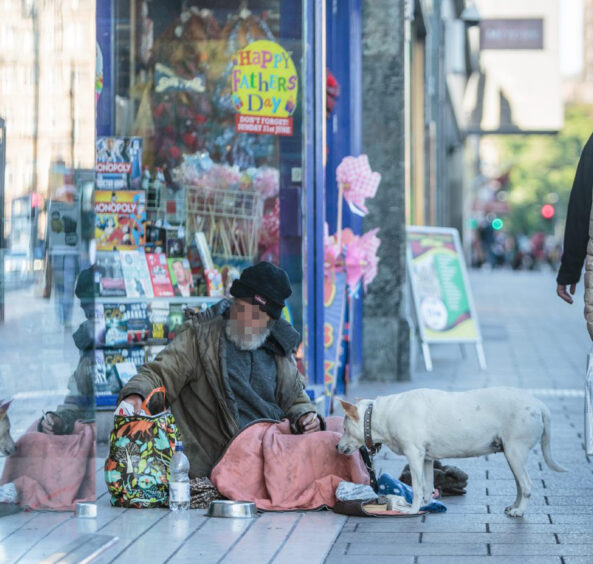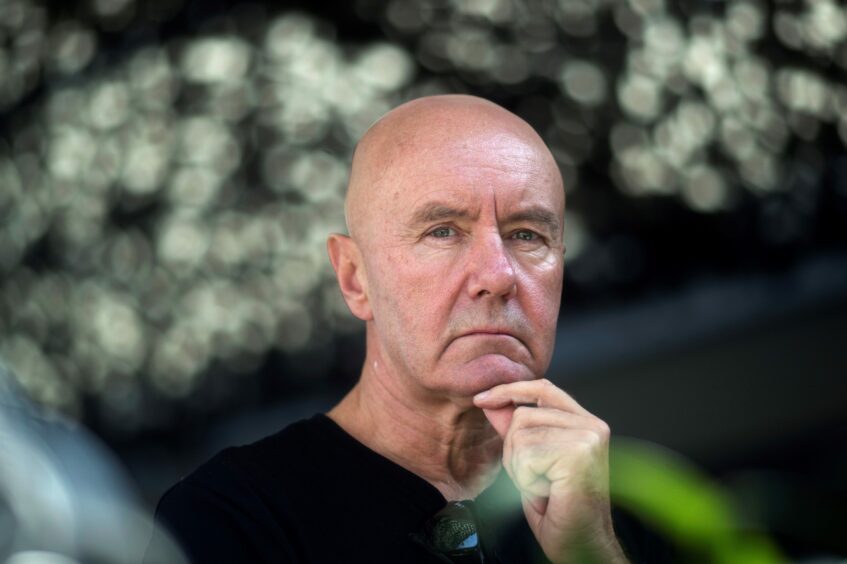
Some of Scotland’s most celebrated authors have contributed to a collection of short stories highlighting poverty and social exclusion in the capital.
Featuring an introduction from Trainspotting writer Irvine Welsh, and new works from Alexander McCall Smith and Ian Rankin, the anthology is published in aid of the One City Trust charity, established to ease the impact of poverty through arts and culture.
In the foreword, Frank Ross, Edinburgh’s Lord Provost, says the book is an attempt to unite the city but suggests the financial crisis then Covid means the capital is more divided not less since the first anthology in 2005.
He highlights a 2020 report suggesting 77,000 people are living in poverty, including one in five children, with the numbers rising 25% in five years.
He adds: “The pandemic has also caused great hardship, bringing increased unemployment, the need for food banks, along with a decline in mental health. Data poverty has increased also as the world turns to online meetings as a way to communicate.
“Schools used online teaching methods with children; yet some homes didn’t have adequate equipment. The inequalities have been huge and the pandemic has exacerbated the divide in society.”

The People’s City collects five stories based around landmarks or significant links to Edinburgh, with each author exploring how the city has changed and grown over the decades.
The book also includes work from three significant female writers: Sara Sheridan, Nadine Aisha Jassat, and Anne Hamilton.
Here, in an extract from his introduction, Welsh argues ordinary people in Edinburgh, like all cities, have been failed by a system benefiting an elite but says the pandemic is an opportunity to build real, enduring change.
This city of banks and finance, of Airbnbs and tourists, has abandoned far too many of its people. Now, there is another way
By Irvine Welsh
It is 16 years since I wrote for the first One City Trust book but, sadly, little has changed in our city or our society.
The poorest parts of Edinburgh are still characterised by under-employment, low wages and insufficient access to essential services as deprivation thrives exponentially, passed down from generation to generation like a devastating disease. More people than ever before have been pulled on to the breadline with more households struggling to make ends meet as benefits are cut and community funding slashed. Working people that might once, 15 or 20 years ago, have been considered middle class are now shackled by debt as queues lengthen outside food banks.
In places like our capital – a global tourist attraction – the people living there are increasingly irrelevant in a city being increasingly redesigned to attract tourists, wealthy students, businesses and housing developers. The people who bring income are paramount, and our modern culture of cheap Airbnb accommodation, landlordism and commercial development constantly feeds the dominant narrative telling us that so-called “legacy citizens” are unnecessary, even a hindrance, to the city’s progress.
In short, the people who actually live in Edinburgh, especially in our poorer communities, are at best forgotten, at worst ignored.
Government agencies and the poverty industry are not friends of our communities. All major transnational bodies, governments local and national, and all major political parties are accepting of an economic system that sees poverty as a (regrettable or otherwise) consequence of the enrichment of the already super-wealthy.
Whether their posturing is “national” or “global”, such agencies are basically the hirelings of the 1%. Therefore, any attempts to challenge this paradigm are piecemeal and token with progressive policies rarely scratching the surface of such systemic issues.
So what can be done to ensure this damaging legacy doesn’t continue from decade to decade? I believe it is time we accept that the state is no longer the driving force for change. It has become purely a tool of capital and now cannot have a role in redistributing power and wealth through the society and community it purports to represent. Therefore our citizens have to find the voice and the confidence to start putting their own structures in place – and there has never been a better time to do it.
Over the past 18 months or more, the pandemic has highlighted the existing inequalities that already plagued our neighbourhoods, shining a spotlight on the hunger, debt and hardship that goes largely unacknowledged in the media and by political parties. In the middle of a time when family and friends were pushed achingly apart, communities rallied together, rebuilding safety nets the Government had, year after year, dismantled.
People were given a glimpse of what our society might look like if we lived in a more benign world where people come first. That is a legacy we need to build on and help flourish.
As a writer, I naturally believe art and culture is vital for encouraging this empowerment to take root. In low employment and low economic areas, the arts are the only real way people can express themselves, and that’s why projects like One City Trust are so important. The purpose of this collection of stories, just like the last, is to encourage people to have the confidence to express themselves. Because doing this involves articulating your own needs and taking action to meet them.
So while angry that the great welfare state, constructed after the horrors of the Second World War, has been decimated and warped beyond repair by the super-wealthy, I’m proud to be associated with a venture that is about art and culture, another casualty of a neoliberal order that reduces them to profitable entertainment.
Brian Eno once said: “Culture is what you do when you do what you want to do, rather than what you have to do.”
We citizens are now irrelevant to the super-rich and their state. The system needs to dupe us into giving it our seal of legitimacy every five years or so. That’s about the extent of our participation in the decisions that affect our lives. But the good news is that they are irrelevant to us. They either can’t or can barely offer many of us work or food, for example, but we can now do that for each other and spend more time doing what we want to do. First we have to learn how to be free. Art and culture, that’s how.
The People’s City is published by Birlinn on Thursday

Enjoy the convenience of having The Sunday Post delivered as a digital ePaper straight to your smartphone, tablet or computer.
Subscribe for only £5.49 a month and enjoy all the benefits of the printed paper as a digital replica.
Subscribe © APA Picturedesk Gmbh/Shutterstoc
© APA Picturedesk Gmbh/Shutterstoc © Marta Perez/EPA-EFE/Shutterstock
© Marta Perez/EPA-EFE/Shutterstock